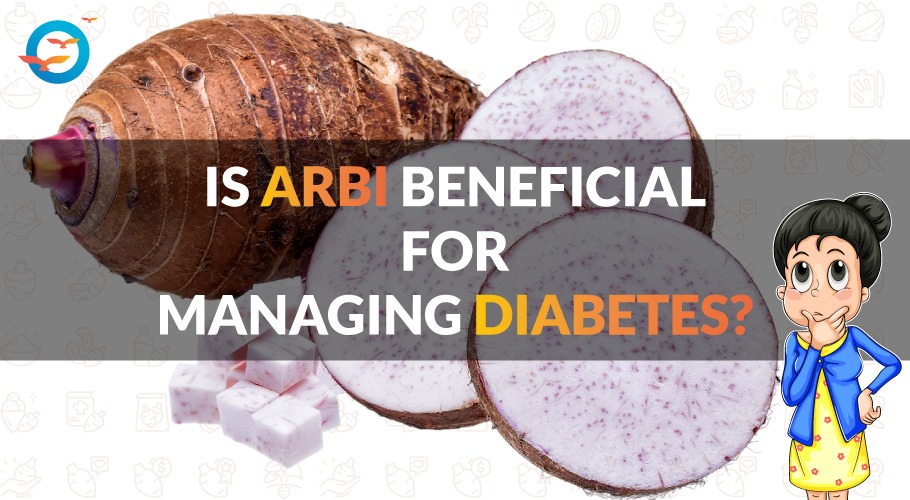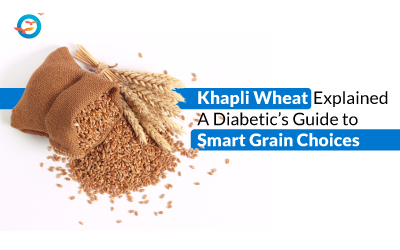Is Arbi Good For Diabetes?

Arbi for Diabetes
In this blog post, we will explore the nutritional composition of Arbi, it’s impact on blood sugar levels, and whether it can be a beneficial addition to the diet of individuals with diabetes.
Nutritional Profile of Arbi
Arbi is a starchy root vegetable that is a good source of dietary fiber, essential vitamins, and minerals. The fiber content in arbi plays a crucial role in slowing down the digestion and absorption of carbohydrates, which can contribute to better blood sugar management.
Arbi Low Glycemic Index
One of the key factors that make arbi potentially suitable for individuals with diabetes is its low Glycemic Index (GI). GI measures how quickly a particular food raises blood sugar levels. Foods with a lower GI are known to have a more gradual impact on blood sugar, helping to avoid sudden spikes.
Fiber for Blood Sugar Control
The fiber content in arbi is beneficial for individuals with diabetes as it aids in maintaining stable blood sugar levels. It not only slows down the absorption of glucose but also promotes a feeling of fullness, which can be advantageous for those focusing on weight management – another crucial aspect of diabetes care.
Cooking Arbi the Diabetes-Friendly Way
To maximize the nutritional benefits of arbi and ensure it aligns with a diabetes-friendly diet, consider the following cooking tips:
-
Choose Healthy Cooking Methods:
Opt for steaming, boiling, or roasting arbi instead of frying to minimize the addition of excess oil. -
Pair with Low-Glycemic Foods:
Incorporate arbi into meals with low-GI vegetables, lean proteins, and healthy fats for a balanced and nutritious combination.
Consultation with Healthcare Professionals:
While arbi can be a nutritious addition to a diabetes-friendly diet, it's crucial for individuals with diabetes to consult with their healthcare professionals or registered dietitians. These experts can provide personalized advice based on individual health conditions, dietary preferences, and overall wellness goals.
Conclusion:
In conclusion, arbi can be a valuable inclusion in the diet of individuals with diabetes when consumed in moderation and as part of a well-balanced meal plan. With it’s low GI and high fiber content, arbi offers a nutritious option for those looking to manage blood sugar levels effectively while enjoying a variety of wholesome foods.
You want to know about Benefits of Ash Gourd, visit our blog.
Freedom from Diabetes suggests incorporating arbi into your diet based on the reasons mentioned above. Our primary recommendation is to follow the 25% formula for meals, which includes 25% vegetables, 25% dal, 25% salads, and 25% grain. This approach ensures a balanced meal that aids in regulating sugar levels and managing weight effectively.
Join our introductory session, Discover Reversal, to understand the process of diabetes reversal. You can also participate in our annual Holistic Transformation Program to kickstart your journey towards better health.
Wishing you all the best in health!
FAQs
Can Diabetic patient eat Arabi?
Yes, taro root (arbi) is a good option for people with diabetes because it has a low glycemic index, which helps prevent sudden blood sugar spikes.
Does Arbi have sugar?
Yes, there are about 3.1 grams of natural sugar per 100 grams of Arbi.
Can I eat Arbi everyday?
Yes, people with diabetes can eat arbi in moderation as part of their daily meals. It's important to monitor portion sizes and balance it with other foods to manage blood sugar levels effectively.
What is arbi?
Arbi, also known as taro root, is a starchy root vegetable commonly used in various dishes.
Does arbi have a low glycemic index?
Yes, arbi has a relatively low glycemic index, which means it has a slower effect on blood sugar levels.

